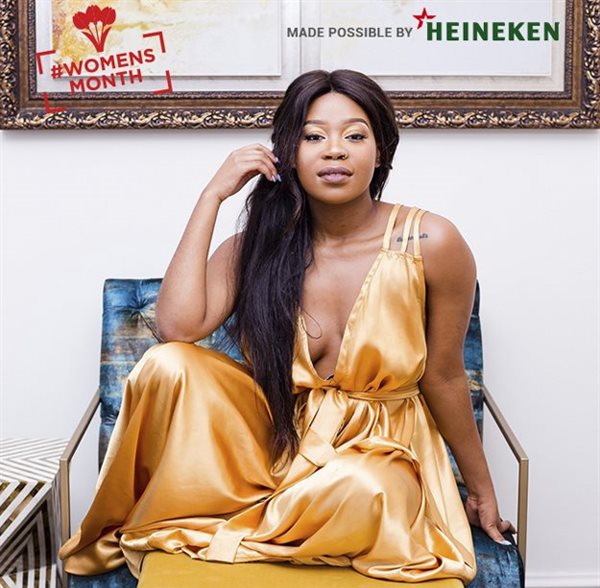






In addition to being kind on the earth, Sheba Feminine products are designed to be gentler on our bodies, with the company steering clear of harmful materials and fragrances found in some commercial brands. The range consists of tampons, pads and pantyliners, and packaging is made using recycled cardboard.
As menstruation is a lived experience for half the globe's population, Sheba Feminine aims to destigmatise reproductive health and the female anatomy and encourage open, honest conversations on the topic.
"Healthy, educated, liberated and conscious people" is what Sheba Feminine strives for, according to the feminine hygiene brand.

In our interview with Ntobongwana, she chats about toppling taboos, driving conscious consumerism and building a sustainable business.
I was born in the Transkei, eMthatha a few months after apartheid ended. My family later moved to East London and my brother and I were sent to boarding school in the early 2000’s. After high school, I pursued my Bachelor of Social Sciences at the University of Cape Town and then did my Honours in African Studies. It was in my Honours year that I conceptualised Sheba.
I was sitting on the toilet during my period and reached over to read my box of tampons. I realised that that there was very little information on the box and that it also didn’t have an ingredient label. I then decided to do my own research on what was in the products that I was putting in my vagina!
Sheba started as a reaction towards commercial menstrual care products containing tonnes of harsh chemicals and plastic.
We’re redesigning the language around reproductive and sexual health with products you can trust.Our products are organic cotton, biodegradable, animal friendly, fragrance- and perfume-free, hypoallergenic, and there are no chemicals!


The lack of suppliers in the field. This was especially true when I began Sheba, however the number has since drastically increased. The certification and accreditation has a lot of red tape too. This means that the space often lacks inclusivity.
I would love to see conversations surrounding reproductive and sexual health become less shameful, less taboo and less restricted. I would love for the education surrounding these topics to be more accessible. I would love to see more conscious consumerism and transparency in these spaces, from your menstrual care products to your feminine health products.
I would like to see higher expectations placed on the companies producing such products, with an introduction of elements such as ingredient labels on our tampons and sanitary pads. Sheba is attempting to do this through our product range and social media platforms but also through our Pay for a Pal’s Pads Programme.
 As a young Black female entrepreneur, what is it like to be a businesswoman in your sector?
As a young Black female entrepreneur, what is it like to be a businesswoman in your sector?I think that career growth is difficult as a Black woman. Garnering trust in your product is difficult for Black women. In actuality I think that higher expectations and challenges are our reality, and that goes for all industries not just mine.Whenever a Black woman is in any industry, I salute her because I know it was not easy getting there. In fact I think we should normalise saluting Black women just for existing, because honestly it’s an extreme sport.
My late grandmother guides me often. She, my other grandmother, mother and aunt were the first black businesswomen that I was acquainted with. They also taught me most of what I know, not only in business, but in life.
My grandmother had the first shop in our village. I remember when we first got a refrigerator, my cousins and I would make iBompi from Oro-Crush and freeze them and sell them to the people that passed by. Later in my life my siblings and I would work at my mom’s shop during our school holidays. From a very young age I noticed that the women in my life have always been exceptional.
You NEED to be bold and brave. At various moments in your journey you may feel like an imposter. You may feel that nothing is going the way you need it to and that maybe, this isn’t for you. In those moments, I need you to remember that you are not here by mistake.You worked your ass off to be here and you need to constantly remind yourself that you are your ancestor’s wildest dreams.
That nothing is ever too hard and or ever too big for you to achieve with people that you trust around you. I don't know why but I always grew up thinking that there were things that would be just too big for me, but what I've learnt and seen is that "hard" and "big" are just words that can be easily broken down.
With inspirational people surrounding you and supporting you, everything is possible!
Visit Sheba Feminine online for more information, and connect with the brand on Instagram and Facebook.
